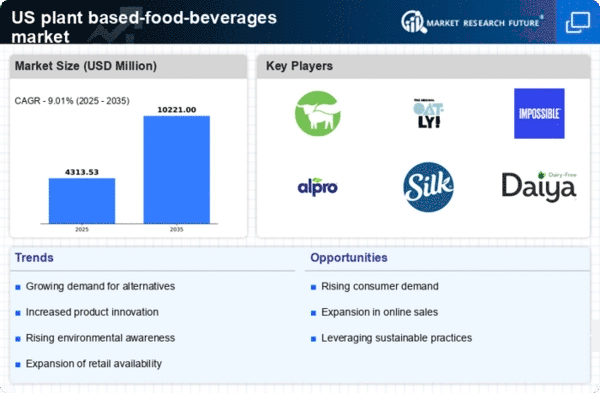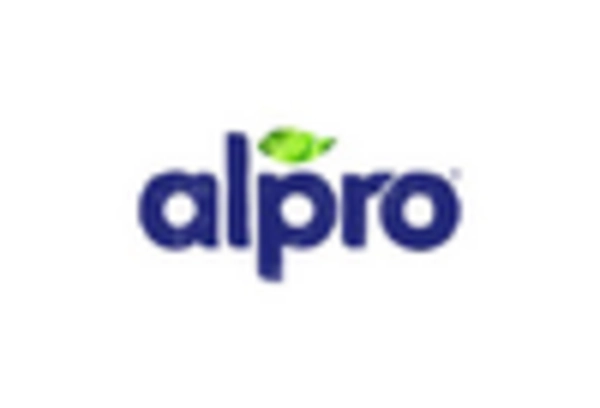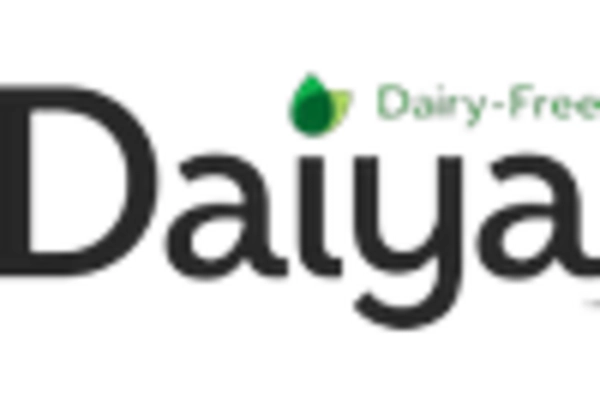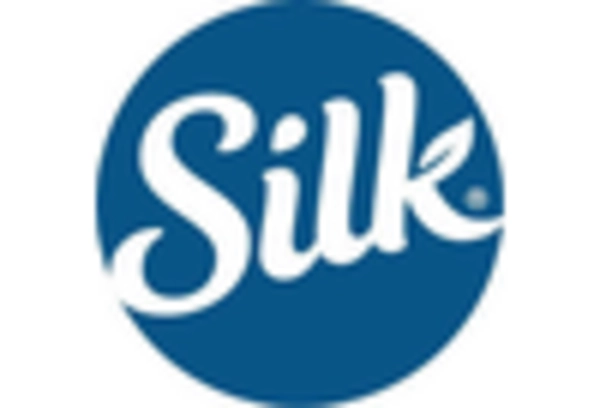The plant based-food-beverages market is currently characterized by a dynamic competitive landscape, driven by increasing consumer demand for sustainable and health-conscious alternatives. Key players such as Beyond Meat (US), Impossible Foods (US), and Oatly (SE) are at the forefront, each adopting distinct strategies to enhance their market presence. Beyond Meat (US) focuses on innovation in product development, particularly in expanding its range of meat alternatives, while Impossible Foods (US) emphasizes partnerships with major food service providers to increase distribution. Oatly (SE), on the other hand, is leveraging its strong brand identity in the dairy alternative segment, aiming to capture a larger share of the growing plant-based milk market. Collectively, these strategies contribute to a competitive environment that is increasingly centered around product differentiation and consumer engagement.
In terms of business tactics, companies are increasingly localizing manufacturing to reduce supply chain vulnerabilities and enhance responsiveness to market demands. The competitive structure of the market appears moderately fragmented, with several players vying for consumer attention. However, the influence of major companies is substantial, as they set trends and standards that smaller brands often follow. This interplay between large and small entities fosters a vibrant ecosystem where innovation thrives, albeit with challenges related to scalability and market penetration for newer entrants.
In October 2025, Beyond Meat (US) announced a strategic partnership with a leading fast-food chain to introduce a new line of plant-based burgers. This move is significant as it not only expands Beyond Meat's distribution channels but also reinforces its position as a leader in the fast-casual dining segment. The collaboration is expected to enhance brand visibility and drive sales, particularly among consumers seeking convenient, plant-based options.
In September 2025, Impossible Foods (US) launched a new product line aimed at the retail sector, featuring ready-to-cook plant-based meal kits. This initiative is crucial as it taps into the growing trend of home cooking and convenience, catering to consumers' evolving preferences. By diversifying its product offerings, Impossible Foods is likely to strengthen its market position and appeal to a broader audience, particularly families looking for quick and healthy meal solutions.
In August 2025, Oatly (SE) expanded its operations in the US by opening a new production facility dedicated to oat milk production. This strategic investment is indicative of Oatly's commitment to meeting rising demand and enhancing its supply chain efficiency. The facility is expected to significantly increase production capacity, allowing Oatly to better serve its growing customer base and solidify its leadership in the oat milk category.
As of November 2025, current trends in the plant based-food-beverages market are increasingly defined by digitalization, sustainability, and the integration of AI technologies. Companies are forming strategic alliances to enhance their capabilities and market reach, reflecting a shift towards collaborative innovation. Looking ahead, competitive differentiation is likely to evolve, moving away from price-based competition towards a focus on technological advancements, product innovation, and supply chain reliability. This transition underscores the importance of agility and responsiveness in a rapidly changing market landscape.

















